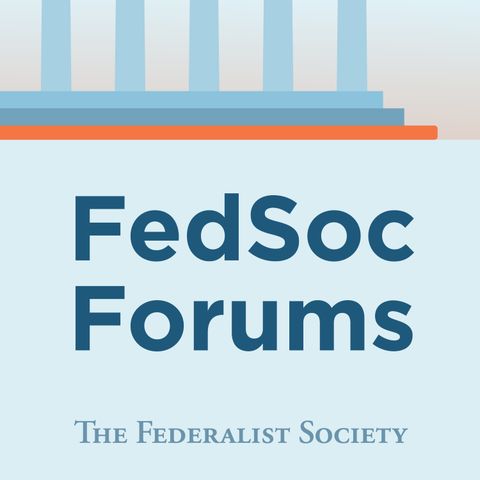Courthouse Steps Decision: Knick v. Township of Scott, Pennsylvania

Jun 25, 2019 ·
46m 52s
Since the 1985 Williamson County v. Hamilton Bank decision, property owners have been able to file claims against local government for takings only in state court. And once there, any...
show more
Since the 1985 Williamson County v. Hamilton Bank decision, property owners have been able to file claims against local government for takings only in state court. And once there, any decision is res judicata to any subsequent federal action. This made property rights claims the only constitutional right that cannot be vindicated in federal court.
Mrs. Rose Mary Knick owns roughly 40 acres in rural Scott Township in Pennsylvania. At the behest of some local activists the township passed an ordinance that allows members of the public to trespass across her property to visit some large stones that the activists claim are colonial-era gravestones. Mrs. Knick had no legal way to stop this invasion of her property – short of suing for a taking. When she tried to sue in state court she was rebuffed because she hadn’t yet been fined for not allowing the trespass. When she next tried to sue in federal court for a taking, she was again rebuffed, that time because of Williamson County.
The Supreme Court decided by a vote of 5-4 in Knick v. Township of Scott, Pennsylvania to vacate the judgment of the Third Circuit and remand the case. Chief Justice Roberts' majority opinion states, "We now conclude that the state-litigation requirement imposes an unjustifiable burden on takings plaintiffs, conflicts with the rest of our takings jurisprudence, and must be overruled. A property owner has an actionable Fifth Amendment takings claim when the government takes his property without paying for it. That does not mean that the government must provide compensation in advance of a taking or risk having its action invalidated: So long as the property owner has some way to obtain compensation after the fact, governments need not fear that courts will enjoin their activities. But it does mean that the property owner has suffered a violation of his Fifth Amendment rights when the government takes his property without just compensation, and therefore may bring his claim in federal court under §1983 at that time."
Please join us as our featured speakers review this decision and its implications.
Featuring:
James S. Burling, Vice President for Litigation, Pacific Legal Foundation
Prof. Ilya Somin, Professor of Law, Antonin Scalia Law School, George Mason University
Teleforum calls are open to all dues paying members of the Federalist Society. To become a member, sign up on our website. As a member, you should receive email announcements of upcoming Teleforum calls which contain the conference call phone number. If you are not receiving those email announcements, please contact us at 202-822-8138.
show less
Mrs. Rose Mary Knick owns roughly 40 acres in rural Scott Township in Pennsylvania. At the behest of some local activists the township passed an ordinance that allows members of the public to trespass across her property to visit some large stones that the activists claim are colonial-era gravestones. Mrs. Knick had no legal way to stop this invasion of her property – short of suing for a taking. When she tried to sue in state court she was rebuffed because she hadn’t yet been fined for not allowing the trespass. When she next tried to sue in federal court for a taking, she was again rebuffed, that time because of Williamson County.
The Supreme Court decided by a vote of 5-4 in Knick v. Township of Scott, Pennsylvania to vacate the judgment of the Third Circuit and remand the case. Chief Justice Roberts' majority opinion states, "We now conclude that the state-litigation requirement imposes an unjustifiable burden on takings plaintiffs, conflicts with the rest of our takings jurisprudence, and must be overruled. A property owner has an actionable Fifth Amendment takings claim when the government takes his property without paying for it. That does not mean that the government must provide compensation in advance of a taking or risk having its action invalidated: So long as the property owner has some way to obtain compensation after the fact, governments need not fear that courts will enjoin their activities. But it does mean that the property owner has suffered a violation of his Fifth Amendment rights when the government takes his property without just compensation, and therefore may bring his claim in federal court under §1983 at that time."
Please join us as our featured speakers review this decision and its implications.
Featuring:
James S. Burling, Vice President for Litigation, Pacific Legal Foundation
Prof. Ilya Somin, Professor of Law, Antonin Scalia Law School, George Mason University
Teleforum calls are open to all dues paying members of the Federalist Society. To become a member, sign up on our website. As a member, you should receive email announcements of upcoming Teleforum calls which contain the conference call phone number. If you are not receiving those email announcements, please contact us at 202-822-8138.
Information
| Author | The Federalist Society |
| Website | - |
| Tags |
Copyright 2024 - Spreaker Inc. an iHeartMedia Company
